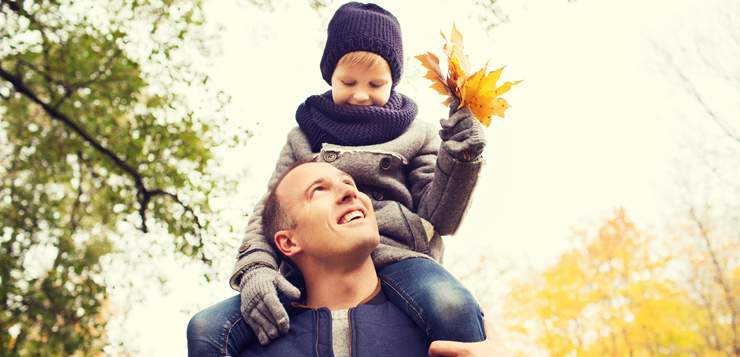You really can’t pass any magazine rack today without seeing something about mindfulness. We’re bombarded with messages of its power—that it helps reduce the effects of stress, improves your immune function, and even improves your decision-making skills. While it’s surely not a cure-all, it is overwhelmingly established by controlled scientific studies to be of value in living a healthy, engaged, and less stressful life (1) (2). It’s been shown to subtly, and yet in measurable and meaningful ways, change the structure of the brain (3). And a study published this month in the journal Psychology by Lea Waters of the University of Melbourne, points to the benefits of mindfulness within our families.
Looking at dozens of parent-child pairs in a community sample, Waters’ data pointed to a significant link between kids’ mindfulness and their experience of stress. Higher reports of mindfulness related to fewer report of stress. The more surprising finding was that children whose parents were more mindful were significantly less likely to report being stressed as well. Though further studies are needed to establish a causal link, this study hints at the role that parents’ own cultivation of attention and nonjudgmental awareness can have in reducing distress in their kids. Consider it a mindful “trickle-down” effect.
Mindfulness is less about technique and more about your willingness to be aware. That’s something every parent has time for.
This data, plus the decades of other research establishing the benefits of mindfulness, suggests that parents should strongly consider adding mindfulness practice to their daily schedules. Yeah right! To many modern, busy parents (the author included), this can seem impossible. Mindfulness seems to require more time than modern life allows. It can feel like too high a bar for the non-Dalai Lamas among us to attain. But let’s be clear…in a sense, you are likely being mindful right now. The act of bringing your attention to bear on the words and ideas presented here, and doing so with an open, curious attitude, makes you a “meditator” in this simple act of reading, whether you happen to be sitting on a meditation cushion or not!
Mindfulness is less about technique and more about your willingness to be aware. That’s something every parent has time for. In order to deepen this willingness, I’d suggest taking the following “Mindful Parenting Self-Assessment.”
Take a moment and ask yourself the following questions about your situation with your child:
• Are you finding yourself frequently “flooded” and overwhelmed by the physical sensations of difficult emotions when trying to manage communication with your child?
• Does the stress of things with him or her build up in your body, wearing you down and sapping your resilience?
• Are you often getting inundated with rapid, distracting thoughts and emotions about your child, the household, and “the future,” and can’t seem to keep yourself centered?
• Are you struggling with the emotional effects of harsh, rigid thinking directed toward either your child or yourself?
• Are you rarely able to say that you are “enjoying” simply being with your child and/or others in the family because you’re often upset over painful things from the past or worries about the future?
• Are you finding yourself gritting your teeth in reaction to your family life, flailing about trying to push away all the upset in one way or another?
Perhaps you answered “yes” to only one of the above. Perhaps you ended up with affirmatives for all six questions? Each is a theme that mindfulness skills can address. Here’s a “key” of these themes, or mindfulness skill targets, so that you can begin to have a sense of where you might need to focus going forward. Upcoming posts will give more ideas for the following:
• Anchoring: getting grounded in your present-moment sense experience.
• Body awareness: soothing the stress that builds up in the body.
• Focus: getting centered when difficult situations are disorganizing and distracting.
• Flexible thinking: creating a more effective, loosened relationship to your own thinking so that it doesn’t bind you up.
• Widened perspective: opening up your access to the present and not getting lost in negative tunnel vision based on the pain of the past or anticipations of the future.
• Acceptance: developing the capacity to ride out pain once it’s arrived on the scene.
Research Citations
1. Hofmann, S. G. et al. (2010). The Effect of mindfulness-based therapy on anxiety and depression: A meta-analytic review. Journal of consulting and clinical psychology 78, 169–183.
2. Grossman, Paul et al. (2004). Mindfulness-based stress reduction and health benefits. Journal of psychosomatic research, 57, 35 – 43.
3. Tang Y. Y., Lu Q., Fan M., Yang Y., Posner M. I. (2012). Mechanisms of white matter changes induced by meditation. Proc. Natl. Acad. Sci. U.S.A. 109, 10570–10574.






